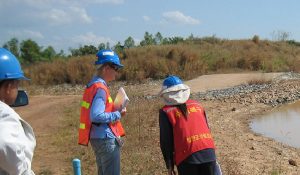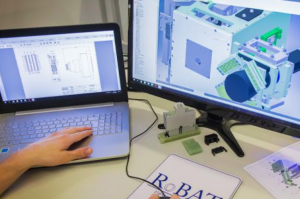Government’s £68m boost for artificial intelligence

More than £68m of investment from the Industrial Strategy Challenge Fund for robotics and artificial intelligence projects aimed at improving safety in extreme environments has been announced by the Government.
This investment will develop robots and artificial intelligence able to take on jobs in the freezing depths of the North Sea, dealing with extreme environments in the process of nuclear energy production, the hostile vacuum of space, and heat of deep mining.
In her keynote speech to the Innovate UK Conference in Birmingham, Climate Change and Industry Minister Claire Perry set out how British experts and innovators are leading the world in this new sector, receiving support from the Industrial Strategy Challenge Fund.
The Government is working with business and academia in order to encourage investment in robotics and artificial intelligence – a priority area of the Industrial Strategy.
Almost £45m will be used to set up four new research hubs based at the University of Manchester, University of Birmingham, University of Surrey and Heriot-Watt University in Edinburgh.
The centres of excellence, managed by the Engineering and Physical Sciences Research Council (EPSRC), will be responsible for developing robotic technology to enable safer working environments in space and deep mining and the hazardous and harsh environments of nuclear energy and off-shore wind.
As well as receiving government investment, the four hubs will be supported by £52 million of industry support from commercial and international partners, and UK Space Agency is co-funding the University of Surrey hub.
Perry said: “Britain leads the world in innovation and technology and through the Industrial Strategy Challenge Fund, we are making the funding available to projects in robotics and artificial intelligence with applications in clean renewable energy generation to ensure the UK is the place new technology is nurtured.
“Next week, I will be at the COP23 conference in Germany, and it will be abundantly clear there that, if we want to truly make a difference to our climate as well as take advantage of the economic opportunities of our transition to a low carbon economy, it will come down to continued innovation.”
The announcements follow the publication of the industry-led Made Smarter review, which predicted Britain’s manufacturing sector could unlock more than £450bn over the next decade and create thousands of jobs if it successfully embraced digitisation, robotics and artificial intelligence.







